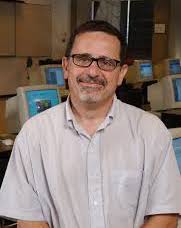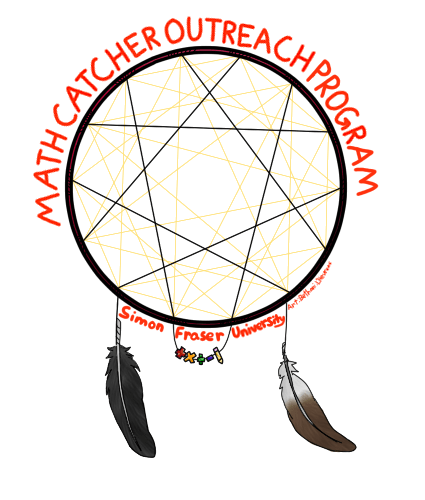Guest blogger: Altay Coşkun, UW Classical Studies & think-centrist.com
I would like to share three recent experiences on our campus with you before I try to explain the value of Institutional Neutrality and explore what this may mean today.
In February, I put forward a concern in one of the university’s committees. I acknowledge the generosity of the host who gave me sufficient time to speak despite my short notice. My problem was with the wording of a template letter that I was expected to use. I was asking for permission to employ an alternative that I found better suited for a public and inclusive institution of learning. Some of the feedback was polite, conceding that I potentially had a case and that there was nothing to object to the alternative in principle, but timing made it difficult for these colleagues to endorse my request. Others insisted that no one should disagree with the Human Rights Charter, although I was far from doing this, and nothing of the kind could be substantiated in my approach. Yet others outright denied my claim that the terminology at stake was politicized or controversial; the fact that I expressed my own moral conflict (or that other Faculties do without the problematic wording) should have sufficed to prove the controversial nature, and I had just taken for granted that my colleagues follow a wide range of national and international news to be aware of the politicized nature.
Yet others even rejected my explicit recourse to the principle of institutional neutrality, insisting that the university should rather actively promote ‘universal values’, though there was little time to discuss which authority to follow in the selection of these values and what to do when there might be a dilemma, that is two values conflicting with each other. About half of the colleagues present were silent, whereas one who was not in the meeting, later wrote me an email to thank me for my courage to raise this important issue. I am unsure about which reaction caused me the most disappointment. I was not expecting full agreement with any of my concerns, but I was hoping that at least someone would speak up in favour of granting accommodation to a colleague who had a substantiated conflict of conscience.
Recently, I had a similarly awkward feeling when I read in the Daily Bulletin that smoking is now going to be banned completely from campus. In my youth, I would have celebrated this, as I am a life-long opponent of smoking (long before such a stance had become mainstream). But I wonder now whether the existing regulations are not already enough to protect non-smokers. The new ruling is more than just a warning against the health risks of smoking and reasonable protection against passive smoking: it sends out the message that those who are addicted to nicotine do not belong to this campus. What or who is next?
But then I had an elevating experience this March, at one of the focus group meetings of the Freedom of Expression and Respectful Engagement Task Force. The host put right in the centre of the conversation a quotation from the Chicago Principles of institutional neutrality, formulated with timeless wisdom and urgency in 1967 on the basis of the Kalven Report, which I had also referenced in my memo to the colleagues in February. The responses from the audience were overwhelmingly, though not exclusively, positive, enough at least to make me hopeful that our self-governing body is on a path to correct mistakes of the recent past. The document states, among other things:
The mission of the university is the discovery, improvement, and dissemination of knowledge. Its domain of inquiry and scrutiny includes all aspects and all values of society. A university faithful to its mission will provide enduring challenges to social values, policies, practices, and institutions. By design and by effect, it is the institution which creates discontent with the existing social arrangements and proposes new ones. In brief, a good university, like Socrates, will be upsetting. The instrument of dissent and criticism is the individual faculty member or the individual student. The university is the home and sponsor of critics; it is not itself the critic. It is, to go back once again to the classic phrase, a community of scholars. To perform its mission in the society, a university must sustain an extraordinary environment of freedom of inquiry and maintain an independence from political fashions, passions, and pressures. A university, if it is to be true to its faith in intellectual inquiry, must embrace, be hospitable to, and encourage the widest diversity of views within its own community. It is a community but only for the limited, albeit great, purposes of teaching and research. It is not a club, it is not a trade association, it is not a lobby.
There is so much to like about these sober warnings, but let me, as a Classical scholar, pick out Socrates. He was (and still is) admired by young and old, democrats and aristocrats. He is the embodiment of free and fearless inquiry, who exposes the prominent and powerful for their biases and limited understanding of justice. His constant emphasis on the good and the just may sound moralizing and antiquated, but his belief that politics should be pursued on the basis of knowledge and that education should focus on virtue and justice make him a potential champion for conservatives and progressives alike. But Socrates would also challenge both of them, and me, the centrist, as well: while constantly seeking for the good and the just, the philosopher was humble enough not to claim that he ever found it. This, I think, was his greatest wisdom: he refused to define an absolute, definite form of justice. He countered the idea that any categorical imperative could be imposed on everyone to make this world a good place.
Human beings are too complex and diverse for a rigid definition, and positive values should never have absolute claims, as they compete with other ethical principles. The best way forward for a society and especially its think-tanks, the universities, is to approach the questions of the world with honest curiosity and respectful pluralism, rather than by prescribing the results of the inquiry before it started. We know of states that did (and do) curtail the freedom of thought and expression, and we know how much harm and suffering they cause(d). We can do much better and thus become the more useful to students, colleagues, and society at large if our own institution maintains political neutrality – or rather becomes a fierce advocate for true education and the free exploration of diverse ideas.
If you are interested in discussing this with me and other colleagues, no matter from which perspective, please get in touch with me.

